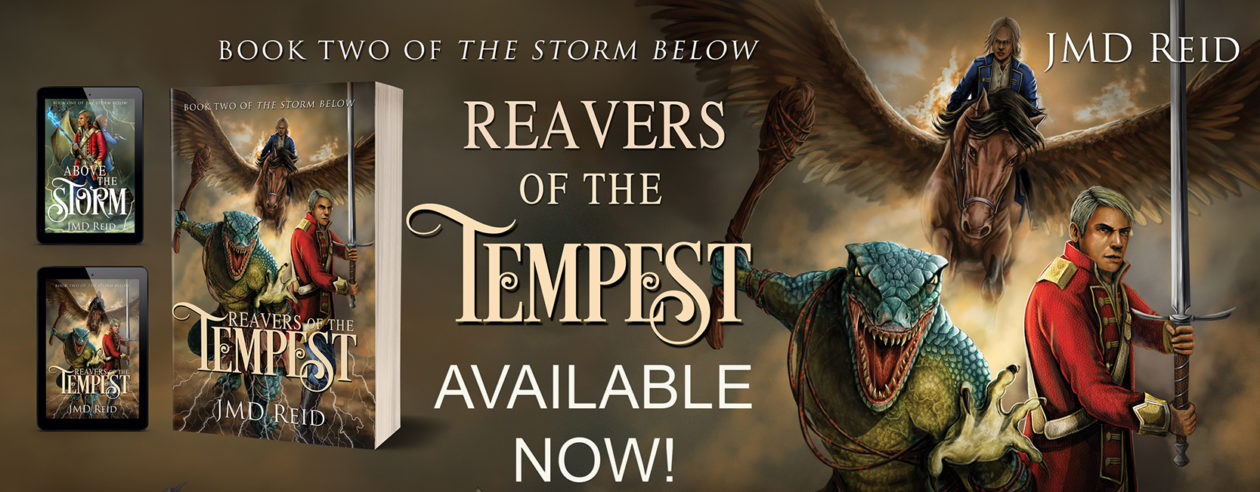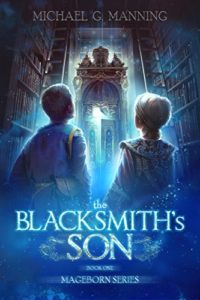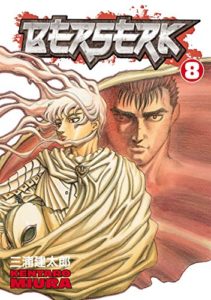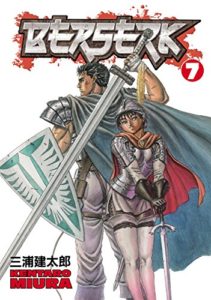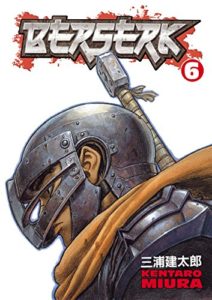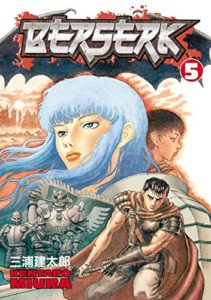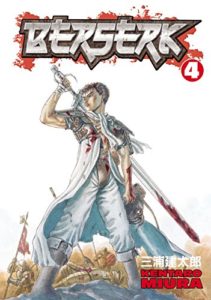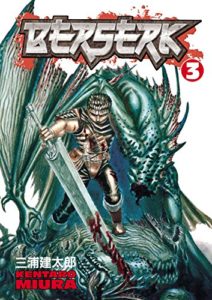Reread of Prince of Nothing Trilogy
Book 3: The Thousandfold Thought
by R. Scott Bakker
The Final March
Chapter 10
Xerash
Welcome to Chapter Ten of my reread. Click here if you missed the Chapter Nine!
Souls can no more see the origins of their thought than they can see the backs of their heads or the insides of their entrails. And since souls cannot differentiate what they cannot see, there is a peculiar sense in which the soul cannot self-differentiate. So it is always, in a peculiar sense, the same time when they think, the same place where they think, and the same individual who does the thinking. Like tipping a spiral on it side until only a circle can be seen, the passage of moments always remains now, the carnival of spaces always sojourns here, and the succession of people always becomes me. The truth is, if the soul could apprehend itself the way it apprehended the world—if it could apprehend its origins—it would see that there is no now, there is no here, and there is no me. In other words, it would realize that just as there is no circle, there is no soul.
—MEMGOWA, CELESTIAL APHORISMS
You are fallen from Him like sparks from the flame. A dark wind blows, and you are soon to flicker out.
—SONGS 6:33, THE CHRONICLE OF THE TUSK
My Thoughts
So, Memgowa appears to be saying that we have an illusion of self. That our “soul” our consciousness isn’t real, but a byproduct of observing the world and rooting through the various causes that effect us. It is shackled to the present, to your belief that it’s in your head. The religious quote reinforces that, saying the soul is just sparks from God and will flicker out fast. That’s ephemeral. Almost accidental, like any spark falling from a fire.
A byproduct of combustion.
This feeds into the theme of the book of determinism. That the universe is material, everything is predetermined, and the only way to change that is for the supernatural to bleed through the outside. Memgowa appears to be in the Dûnyain camp of no outside, but as we can see from this world, the Chronicle of the Tusk may have a better explanation, in this universe, for the concept of self. That it is a spark from the outside, an accidental guttering, that lands in a human host, perceives the world for a time, thinks it is real and important, than flickers out by that dark wind, becoming smoke that drifts back to the Outside.
These quotes are to prime us with the conversation Achamian and Kellhus have in this chapter on the nature of souls, the God, and sorcery with Bakker taking the stance that the soul is real where, I think, the above quote is a more atheistic take on self-awareness, a peep into Bakker’s own views, perhaps.
Early Spring 4112 Year-of-the-Tusk, Xerash
Several days after the siege of Gerotha started, the Scarlet Spire arrives. The city, as Kellhus promises, surrenders almost immediately thereafter, the embassy bringing the heads of the loyalist, including Captain Hebarata. This does not appease the Great Names. Kellhus, speaking harshly, says the Gerothans need to make a sacrifice to “atone for and to warn against what had happened.” They defied him for four days, so they have until dawn to kill 4 out of 10 of their number.
That night, while the Holy War celebrated, all Gerotha screamed. Dawn’s light found her walls slicked in blood, their entire circuit ornamented with severed heads, thousands of them, either bundled in fishing nets or strung through the jaw along hanging ropes of hemp. When the heads were counted, it was found that the Gerothans had exceeded their measure by 3,056.
In all of Xerash, no city, town, or fortress would bar her gates against the Holy war again.
As this happens, Athjeäri enters the Sacred Lands, the first Lord of the Holy War to reach Amoteu. He plunges in, finding the people “treacherous and supportive by turns.” Though they are Fanim, they hate the Kianene and think their side is losing. Athjeäri battles deeper, visiting holy sites while evading or defeating the soldiers Fanayal sends after him.
Hurall’arkeet, the desert men began to call him—the “Wind Has Teeth.”
Finally, on the Day of Palms, the iron-clad knights rode into Beseral, the ancestral home of the Latter Prophet’s now-extinct line. Though the Inrithi mission had fled long ago, many Amoti gathered to cheer the haggard wayfarers.
For such hearts, they told one another, had to be holy.
Esmenet and Kellhus walk before Achamian through Gerotha, the pair talking like he’s not even there. The “Toll of Days” has been paid and now the Sacral Retinue toured Gerotha to be “seen, Achamian imagined, as to inspect his [Kellhus’s] prize.” Esmenet gives on update on Joktha she received from the Scarlet Spire, saying Cnaiür has it under control.
Achamian could only watch and listen with dismay and admiration. It was a marvel to see her thus. There was her appearance, of course, her hair pinned in a jeweled brace, her gown—a Kianene chiton—sewn for the courts and pleasure gardens of the White Sun Palace in Nenciphon. But there was her bearing as well. Upright. Guileless. Penetrating and ironic. She was a match, and an easy one at that, for her new-found station.
It made breathing difficult. I have to stop this!
He remembers how it was when it was just him and Esmenet, how he could touch her and now Kellhus “had become the centre, the way station that all must cross to find one another.” He feels a “heartbroken beggar” following along behind them, wondering why she called him strong.
Kellhus comments that Eleäzaras had insulted Esmenet, and she say a whore. Kellhus tells her she needs to expect these insults since she is unfamiliar to them. After she makes a quip, bringing a laugh from Kellhus, he talks about how men think primarily “in terms of things, not relation.” He explains this is why men think gold, not belief, makes coins valuable. Esmenet realizes he is talking about herself, saying men can’t understand that she has value to the Warrior-Prophet as more than a whore.
A sliver of sunshine flickered across her, and for an instant everything about her, from the pleats along her chiton to her red-painted lips, gleamed silk. The two of them seemed something otherworldly in that moment—too beautiful, too pure, for the dingy brick and unkempt hearts that surrounded them.
Esmenet makes a dick joke, and Achamian feels pain hearing her speak in “the old way.” He’s not sure why though. Kellhus jokes with her, speaking how men see gold and dicks the same way because they make it relevant, even Eleäzaras.
Shaking his leonine head, the Warrior-Prophet laughed to the heavens. And though Achamian could feel the laughter’s contagion, its preternatural demand to celebrate things great and small, grief struck all breath from him. Anasûrimbor Esmenet glanced about, her look shy with joy. Her eyes clicked away the instant she met his desolate gaze.
She took her husband’s hand.
The Lords of the Holy War gather in the ruins of Xerash’s palace, Charaöth waiting on Kellhus. Achamian is on the periphery, surprised that Charaöth wasn’t destroyed by the Kianene. To the Inrithi, it is an evil place, the “very heart of malevolence” while, Achamian later learns, the Kianene see it as a holy place. He feels the weight of evil king Shikol who once ruled from here, a man Achamian’s mother would threaten him with as a child.
Achamian is trying to ignore Esmenet, who is sitting nearby. As the crowd grows quiet, and Achamian thinks Kellhus has arrive,d he spots a sorcerous bird (the Synthese). Then Kellhus enters and Achamian senses the Mark on him. “It dirtied him [Kellhus] somehow, even as it augured an unthinkable future.” The bird has Achamian unnerved. He wonders if it’s from the Consult or if it’s “scarlet mischief.”
Kellhus starts with a sermon about how here Shikol condemned Kellhus’s “brother,” Inri Sejenus. He talks about how they are finally treading “the very ground of scripture.” He bids the lords to reflect on their journey, on all that they had conquered to reach here. Achamian sees “the disc of ethereal gold, the halo” about Kellhus’s right hand. He is reaching towards the horizon where they will march a final time to Shimeh, saying, “Even now we rewrite the scripture of this place!”
The Great and Lesser Names, who had watched rapt, erupted in shouts of ardour and worship. And Achamian could not but wonder what they must sound like to the Gerothans skulking the alleys below. The mad conquerors…
Kellhus says that the Men of the Tusk are something new, something better than before. That they are “the God’s own knife, cast in the crucible of plague, thirst, and starvation.” In the middle of his exhortation of them, he trails off and says men like to boast, asking who hasn’t “whispered lies in a maiden’s ear” Everyone laughs as he abandons his oration, shifting from the Warrior-Prophet to the Prince of Atrithau, their peer and drinking buddy now. He switches back to talking about war and doom and the glory of their task, saying it will “outshine that belonging to any of our forefathers.” He says they are giants. Which rings thunderous applause. Even Achamian is swept up, shedding tears, confused by his emotions. Even Esmenet cries.
“So who?” Kellhus bellowed through the trailing thunder. “Who is this menial who speaks as King?”
Sudden silence. The buckled stone, with its lattice of weeds and grasses, seemed to hum. The Warrior-Prophet held out both shining hands—a welcome, an appeal, a breathtaking benediction. And he whispered…
“I am.”
Achamian reflects, as Kellhus dismounts the dais and motions for a prayer to begin, how men submit to hierarchy wherever they go. Kellhus, however, overturns all that wit his own hierarchy. Achamian thinks the world is bending around Kellhus and imagines Esmenet sleeping with him, and is suddenly afraid she’ll be destroyed by Kellhus as Achamian recognizes Kellhus is a prophet.
So what did that make of Achamian’s hate?
Achamian doesn’t join the discussion as the conquest of Amoteu, the lands around Shimeh, are plotted. The Holy War has one last march to make. He feels like everything is so surreal, noting how civil it is. No one’s bickering is “fueled by wounded or overweening pride.” Kellhus had ended that. They were his “unto death.” There were disagreements, of course, but no one is judged for dissenting. A Kellhus says, “where was Tyrant, the clear-eyed need fear no oppression.” The order of the march is determined, with the Thunyeri leading the van. Not even Kellhus knows what the Fanim plan, though the Scarlet Spire expect that the Cishaurim will fight in Shimeh instead of abandoning it. They expect Fanayal to either contest their march or retreat to the city. There, he would give fight. Everyone can feel that both the Cishaurim and Kian would win or lose. Kellhus says they must march now.
“We diminish,” he [Kellhus] said, “while they grow.”
Achamian’s gaze wanders, somethings to Esmenet who receives reports from functionaries, to Werjau, Gayamakri, and the other Nascenti standing behind Kellhus. Achamian realizes that the Holy War, starting off as a “migratory invasion led by a raucous council of chieftains” had become an emperor’s court. They no longer led, but advised Kellhus like generals. This has caused the rules to change, just like they did in benjuka. He finds it absurd.
Near sunset, Achamian has a head ache and he yearns for that bird he spotted to be prelude to a Consult attack so he could do something. Then the council ends. He feels Esmenet watching him, but he can’t approach her because others do. Proyas, however, does. Things are awkward at first, with Proyas clearly uncomfortable. He tells Achamian he should see Xinemus. Though he hasn’t asked for Achamian, he talks about him. Achamian says he has to protect Kellhus, his sharp retort angering Proyas. Achamian thinks Proyas is broken now and as Proyas argues he can visit, Achamian finds himself punishing Proyas by refusing. Achamian realizes he still bears old grudges he can’t help but seek payment for. Proyas repeats the request and leaves in bitterness. Achamian, feeling numb, watches with a blank mind at the interactions around him, feeling suddenly alone.
He knew nothing of his family, that this mother was dead. He despised his School almost as much as his School despised him. He had lost every student, in one way or another, to the blasted Gods. Esmenet had betrayed him…
He coughed and swallowed, cursed himself for a fool. He called out to a passing slave—a surly-looking adolescent—told him to fetch some unwatered wine. See, he thought to himself as the boy ran off, you have one friend. His forearms against his knees, he stared down at his sandals, frowned at his untrimmed toenails. He thought of Xinemus. I should see him…
A shadow fell on him and he knows it’s Kellhus. He asks if it’s time. Kellhus said soon. Achamian dreads their nightly lessons on the Gnosis. It unnerves him to witness Kellhus make intuitive jumps in logic with the War-Cants. He fears how much Kellhus “so effortlessly outran his [Achamian’s] ability to compare or categorize?”
Kellhus asks what troubles Achamian, and he almost says, “What do you think?” but instead asks why would he attack Shimeh when Golgotterath is the enemy of the world. Kellhus says Achamian is tired and suggests canceling the evening’s lesson, but Achamian interrupts. He’s fine. “Sleep and Mandate Schoolman are old enemies.”
Kellhus nodded, smiled sadly. “Your grief… It still overcomes you.” For some treacherous reason Achamian said, “Yes.”
Though most have left, some watch from “a discreet distance,” waiting on Kellhus. He waves them away and soon Achamian is alone with him. They sit in silence while a cool wind blows around them. Achamian feels like he’s hiding from his father as a child. A part of him can’t believe Shikol once inhabited this place.
Kellhus talks about how he used to hear only noise from the world, but now there is a voice. This makes Achamian shiver. For a moment, Achamian sees the halos around Kellhus’s hands while Kellhus looks to the horizon.
“Tell me, Akka,” Kellhus said. “When you look into a mirror, what do you see?” He spoke as a bored child might.
Achamian shrugged. “Myself.”
A teacher’s indulgent look. “Are you so certain? So you see yourself looking through your eyes, or do you simply see your eyes? Strip away your assumptions, Akka, and ask yourself, what do you really see?”
“My eyes,” he admitted. “I simply see my eyes.”
“Then you don’t see yourself.”
Achamian stares dumbfounded as Kellhus grins and asks where he is if he can’t be seen. Achamian says he’s here, and Kellhus asks where that is. Achamian is confused as Kellhus asks how he can be here when Kellhus is here and Achamian is there. Achamian realizes Kellhus is playing word games.
Kellhus nodded, his expression at once cryptic and bemused. “Imagine,” he said, “that you could take the Great Ocean, in all its immensity, and fold it into the form and proportion of a man. There are depths, Akka, that go in rather than down—in without limit. What you call the Outside lies within us, and it’s everywhere. That is why, no matter where we stand, it’s always here. No matter where we dare treat, we always stand in the same place.”
Metaphysics, Achamian realized. He spoke metaphysics.
“Here,” Achamian repeated. “You’re saying here is a place outside place?”
Kellhus begins talking how a body is merely the place where a soul breaches into the world. This means that they are in the same metaphysical space because, as Achamian splutters in realization, Kellhus is saying they’re the same person. Kellhus says there is only one Soul “breaching the world in many different places” while failing to recognize itself. Achamian thinks this is “Nilnameshi foolishness.”
“This is just metaphysics,” he said, the very instant Kellhus whispered, “This is just metaphysics…”
Achamian is shocked, not sure if he had spoken those words of if Kellhus had spoken through him. He starts to realize Kellhus must be him, “How else could he know what he knows.” Then Kellhus asks why some people can “work miracles,” sorcery, and other’s can’t. Achamian starts to explain but then realizes he doesn’t, that he’s ignorant like every other sorcerer. Despite that, he gives the answer that it’s about “meanings.” He doesn’t know why it is that the “meanings are different” for some. Kellhus then asks if love means the same thing to Achamian.
Reward the intellect and punish the heart. It was always the same with Kellhus.
“What are you saying?”
“That the meaning is different because what it recollects is different.”
Esmenet.
Achamian starts to ask if sorcerers are recalling something and then realizes what Kellhus means, this one soul. Kellhus presses him, asking him what he can remember “that might make miracles of mere words?” Achamian, confused, thinks of his fight with the Scarlet Spire at Iothiah. He wonders how could a “mere man say such things” and reshape the world.
“We kneel before idols,” Kellhus was saying, “we hold open our arms to the sky. We beseech the distances, clutch at the horizon… We look outward, Akka, always outward, for what lies within…” He splayed a hand against his chest. “For what lies here, in this Clearing that we share.”
Achamian says the ubersoul is the God that is looking out “from behind all our eyes.” Kellhus says all humans are God, that the God watches the world through everyone’s eyes. Humans just forgot that, have become detached before the “immensities of the world.” But the Few are those who haven’t forgotten as much as others. He remembers a moment during the battle when he’d performed sorcery beyond even Seswatha’s ability. He wonders who he’d been at that moment.
“To speak sorcery, Akka, is to speak words that recollect the Truth.”
“Truth,” Achamian numbly repeated. He understood what Kellhus said, he knew, and yet something within him refused to grasp. “What truth?”
“That this place behind our face, though separated by nations and ages, is the same place, the same here. That each of us witnesses the world through innumerable eyes. That we are the God we would worship.”
Achamian has the feeling he was the God staring through eyes of different people. Suddenly, the Cants of Calling and Compulsion make sense, along with Seswatha’s dream. Kellhus continues, saying Achamian has thought himself an outcast, making him bitter and ready to castigate those who hate him. He’s lived in shame even while believing he was better than those who spat at him. Achamian would demanded to know “why must I be damned.”
And Achamian thought, He is! He is me!
Kellhus smiled, and somehow—impossibly—Achamian saw Inrau in the iridescent cast of his [Kellhus’s] look. “We are each other.”
But I’m broken… Something’s wrong with me!
“Because you’re a pious man born to a world unable to fathom your piety. But all that changes with me, Akka. The old revelations have outlived the age of their intention, and I have come to reveal the new. I am the Shortest Path, and I say that you are not damned.”
Just as he’s seized by this awe, the old Mandate Catechism whispers in his mind, adding doubt, but Kellhus keeps talking, explaining how a sorcerer “works miracles because they recall the God.” That’s what the Mark is, the flawed re-creation of the Few who are unable to perfectly recollect “the God’s voice.” They lack all the angles the God has to see, all the “thousand eyes that look out from this clearing we call ‘here.’”
Achamian asks about the Cishaurim. Kellhus explains that by blinding themselves, they can’t see this world which allows them to better recollect what the God’s see. This allows them to “recall the tone and timbre, the passion of the God’s voice—to near perfection—even as the meanings that make up true sorcery escape them.”
And there it was: the mysteries of the Psûkhe, which had baffled sorcerous thinking for centuries, dispelled in a handful of words.
The Warrior-Prophet turned to him, clutched his shoulder with a shining hand. “The Truth of Here is that it is Everywhere. And this, Akka, is what it means to be in love: to recognize the Here within the other, to see the world through another’s eyes. To be here together.
His eyes, luminous with wisdom, seemed unbearable.
Kellhus says this is why Achamian suffers because Esmenet was here but has now turned away. Achamian asks why he’s telling him this. “Because you are not alone.”
Fanashila believed slavery agreed with her. She enjoys her new life as Esmenet’s servant. It’s an easy life, and had the benefits of giving her power among the other slaves. “How could the freedom to chase goats compare with this?” We get a taste of the slave hierarchy, with those like Opsara who were part Kianene and thought themselves better than the others.
The only part she really doesn’t like is kneeling in worship while a Shrial Priest gives a sermon in a language she only knows little. She hates praying to the idols, which she finds grotesque like Ajokli, or made her blush like Giera. Though the priest call them “Aspects of the God” Fanashila knows they’re demons. Still, she prays “just as she was told.” Sometimes, she’ll notice the little signs of her true faith peeking through and it makes her silently repeat her word’s faith.
One for the Unbeliever… One for the Unseeing Eye…
This, she decided, had to be enough. What harm could there be in praying to demons, when the Solitary God commanded all? Besides, the demons listened… They actually answered their prayers. Why else would the idolaters be the slavers and the faithful the slaves?
At night, she sleeps in a large tent with the other slave women. Some who cause trouble, or are beautiful, are taken away and don’t always return. “But as far as Fanashila was concerned, they brought it on themselves.” She believes as long as she obeys, she’ll be rewarded. When it’s her turn to be taken away one night, she clings to the belief that she was obedient and will be fine, that Lady Esmenet will protect her.
Koropos, a freed Inrithi slave and now overseer, doesn’t answer her questions. She thinks she’s being taken to someone’s bed. She thought they wouldn’t dare rape and despoil her because Lady Esmenet protected her.
She’s brought before Werjau, which shocks her. She kneels and he asks her, in a gentle voice, about a rumor. She doesn’t know what he’s talking about, but relief sweeps through her. She likes gossiping.
Werjau smiled down at her, stood so perilously near she could smell the sour of his crotch. He brought a callused thumb to her chin. She shuddered as he traced the outline of her lips.
“That they are lovers still,” he said. Though his gaze remained remote, something seemed to… smirk in his tone.
Fanashila swallowed, afraid once again. “They?” she asked, blinking tears. “Who?”
“The Prophet-Consort and the Holy Tutor”
My Thoughts
Well, we see a typical Dûnyain solution to the siege and the rest of the war. By making the Gerothans punish themselves for defiance, he has shown everyone else in Xerash not to defy him. And it worked. He found the shortest way to conquer the area and probably saved more lives than would be killed if had to conquer them all, but… this sort of greater good philosophy, the ends justify the means, is not a great solution to the worlds ills.
Bakker takes a moment to show us that Xerash (the land of evil) and Amoteu (the Holy Land of Inri Sejenus) are so alike, the people so close in custom and appearance, the terrain flowing without any demarcation from one to he other, that Athjeäri doesn’t even notice it. Bakker’s showing us that these beliefs are as fictitious as the dividing line between these two people. Like a spiral set on a side appears to be a circle; it’s not real.
Athjeäri’s march is how legends are formed. You can see it as the people cheer him. Even if the Holy War fails, the Amoti and Kianene will talk about him. He’ll grow to such heights that in a thousand years, it won’t be a band of five hundred, but a small company made up of Athjeäri and his few loyal retainers who fight against odds. To the Kianene, they’ll be remembered as great villains, but to the conquered Amoti, perhaps they’ll be seen as symbols of resistance. And, in the present, of course, they’re being cheered because everyone loves rooting for the underdog when he’s winning.
We have an update on Uranyanka and his blasphemy and sedition. Does this matter? I will try to pay attention to this name.
Poor Achamian. How torturous it has to be to serve the man who stole your women then have to see them chatting (speaking of political matters is Kellhus and Esmenet’s small talk) in marital serenity. He’s trying to move on, but can’t.
More insight into Kellhus about how people, especially men, think. Men, as a whole, are more into things than women are (always exceptions, of course). Men think things have value in them based on what they do, not what you believe them to do. To the powerful, like Eleäzaras, she’s just a woman, a companion to bring comfort, a vessel in which to pour in seed and create strong sons. They can’t see her as an object that has the value Kellhus believes she has, just like they can’t realize the coin is only valuable not because of what it is, but because of what they believe.
The reason hearing Esmenet make the dick joke disturbs Achamian is the contrast. He’s trying to see her as the Empress, the consort to the Holy Prophet, to let her go. To see her as something greater than him. Something he’s not worthy to behold, but that Kellhus is, then he’s reminded that she’s a common-born whore. Just like he’s the common-born son of a fisherman. That banter used to their way of talking, and now she shares it with Kellhus.
Right before Esmenet takes Kellhus’s hand is the first time Achamian thinks of her as Kellhus’s wife, Anasûrimbor Esmenet. I did a search of the ebook’s text, and this is the only time in the ENTIRE novel she is addressed this way. Seeing her laughing and joking, a real woman and not the ideal, has proven to Achamian that she is lost.
Lurid tales written about people by their enemies sometimes have a ring of truth in it. Maybe Shikol wasn’t “making sport” with children in the middle of his throne room, and yet there looks like a bed might have been there. Right in the middle of the room. Maybe something else happened there that provided the foundation. Or maybe not. It’s Bakker showing us how the official narrative, like who Kellhus is, might not be the reality. But there has to be some kernel of truth to be there to lay that foundation.
“Scarlet mischief”… What a nice way to frame the Scarlet Spires schemes. To Achamian, concerned with Apocalypse, their petty plots are just mischief. Something petty and childish going on while the adults conduct real business.
For a moment, Achamian is swept up in the belief and sees the halos, then he loses it, thinking everything is mad as he imagines what the people of the city must think of these fanatics. Achamian’s mind is schooled to question everything.
Kellhus is working the crowd. Getting them pumped, then reminding them not to boast too much. They have done great things, but they can’t let themselves over exaggerate. Because, as he says, “War watches through our eyes.” They are doing great works. He is making them feel good about the evils they are committing on their “holy” war.
Kellhus uses even the location to his effect, bringing up evil King Shikol judging Inri Sejenus and taking his place after getting the entire crowd pumped up with how awesome they are. He fought a great battle here and triumphed.
Bakker starts the section of the war council talking about how men submit to hierarchies, then we have Achamian realizing that the hierarchy of the Holy War has shifted to an imperial court, everyone adopting their new roles and following the new roles, even him, as the vizier.
Pettiness can destroy any relationship if we let it. It can be so easy to do.
Uranyanka’s story progresses in the background. Achamian doesn’t get why the Ainoni are laughing at him kissing Kellhus’s knee, but we learned previously that he’s given up his blasphemy. Clearly, he’s making a public declaration.
Feeling alone in a crowd is the worst thing. Poor Achamian. Lost Inrau and Proyas to the Thousand Temples and Kellhus to his own prophethood. His women left him, his mule is dead. He needs to write a Country-Western song.
Achamian feels like a petulant child now after his angry flareup at Kellhus. He sees Kellhus as his father, imagines hiding from him. Why? Notice Kellhus says that strange line about Achamian being tired, telling him to go to bed. It puts Achamian in the place of a child and he reacts accordingly. Kellhus has manipulated the darkness. Cause and effect.
The voice Kellhus hears is very real. He heard it on the Circumfix, and I think he heard it earlier in his trance where he saw the future, which is I think the first time the outside touched him. Perhaps that was Ajokli molding Kellhus to be his avatar, perhaps it was the No-God reaching out to someone who could activate it. Either way, he saw the heart. No way Kellhus could have predicted pulling Serwë’s heart out of his own chest. He might have seen the Circumfix that early, but performing an actual miracle? No.
And it was a miracle. He did pluck Serwë’s heart out of his chest. A topoi had formed there and the outside bled through.
Okay, the we are all one soul thing failing to recognize each other is an interesting concept, but I don’t think that’s how Bakker’s world truly works. We see that in the Outside souls are still separate entities. They feed on each other. Enslave each other. We get this from demons that are summoned feed on each other. That’s what the gods do. And the No-God sucks in souls, stealing them. That’s it’s purpose to end the Outside and allow souls to find oblivion instead of damnation. Kellhus is spinning this tale to convert Achamian into a believer. To break through Achamian’s doubt. He’s doing it through metaphysics, by manipulating him into a state of mind and then using sorcery as his Truth to anchor his lie to.
Great observation on Bakker. Words, of course, have their denotation, their dictionary definition, but they also have their connotation, what they imply. Those connotations can shift over time, leading to words having archaic meanings. Gay used to be a word that meant happiness and joy. Over the years, it shifted its meaning until using it in that way sounds inappropriate to us because the word know conjures those who are homosexual, particularly men. Decimate is another. It used to mean to kill a tenth of something, a fraction, whereas know it means to utterly destroy something. Other words, like love, have so many shades of meaning to just one person, let alone to other English-speaking people who have to use that one word to cover such a vast array of feelings, emotions, and relationships. It can never have a meaning that is the same for every single person unlike, say, pebble.
Kellhus is speaking of a very Luciferian doctrine. The idea that all humans are God. Have that potential for divinity and can achieve it through enlightenment. At the same time, he’s speaking the truth about sorcery. That it is recollecting the divine, not the God in the sense of Inrithism, but the Absolute that the Dûnyain seek. That all-encompassing knowledge. The Pleroma, the light of creation, from Gnosticism in our own world. Whether souls, including the gods like Yatwer and Ajokli, are truly bits of one ubersoul or not, sorcery works on tapping into the memory of the Absolute Truth, the Absolute Knowledge of the Universe, of Creation itself, and therefore can change it. It’s not done well, hence the Mark. Though Psûkhe, thanks to its reliance on emotion, does a better job of mimicking it.
A theme of Bakker’s is that neither pure intellect or pure emotion is good. We get the extremes of the Dûnyain and the Inchoroi from those two extents. But Psûkhe, knowledge fused with emotion, allows the creation of miracles so perfect they are indistinguishable from reality.
There is just so much truth in the lies that Kellhus is spinning to capture Achamian. This one soul theory is allowing Achamian to re-frame his existence into a new way of looking at things and realizing he’s not damned. And in that, though, his rational doubt is working against the faith Kellhus is creating in him.
Interesting that Kellhus, even with the Metagnosis, still has the mark. He never sees the world through all the angles. And we know that the miracles of the Gods, like what Yatwer works on Psatama in the next series, don’t bear the mark. The Hundred, whether true gods or demons, can clearly see the world better than Kellhus.
They can deceive Kellhus.
Kellhus is doing all of this to help Achamian get over his grief. He needs Achamian to accept Esmenet’s loss, but also understands the man has to get through his grieving processes. Kellhus did something similar with Esmenet in the last book. He had to overcome the guilt she felt for loving again and for moving on. For leaving the here of Achamian for a new here.
What a profound comment on human nature. It’s not the bondage that humans have a problem with, it’s the conditions. Fanashila has to serve Esmenet, but she’s not demeaned or humiliated. She’s not beaten or coerced. She gets perks. It’s not drudgery like being “free” would give her.
This is one of the first mentions of Ajokli we get, and it’s not of him with the four horns like in later books, but him with his head on a his dick. Maybe Bakker made a mistake, or maybe he’s showing us the more trickster and mischievous elements of the god then his assassin persona we see in the next book.
Not all religions can survive being enslaved. If you believe your God is all powerful and then your enemy wins, well, that’s a knock to faith. Fanashila is holding onto what she has, but she’s finding contentment in her new life.
Koropos was a freed slave. Now he’s in charge of slave, returning on his enemy what happened to him. It’s a subtle thing on the cyclical nature of human behavior and how these patterns can lock us into problems for generations.
So Werjau is maneuvering against Esmenet. But as far as I know, this is never brought up again in the books. He never acts on this. It never impacts the plot. This is like some story thread that wasn’t fully excised from the book. I’ll pay attention going forward. Maybe I’m wrong and there’s something subtle here, but I think this is the one time in this trilogy of a plot thread that doesn’t matter.
Click here for chapter eleven!
Hi, if you like my Analysis, you can connect with me on Facebook and Twitter, and you can check out my short stories on Amazon! Also, please leave any comments or criticisms below! They help keep me motivated!
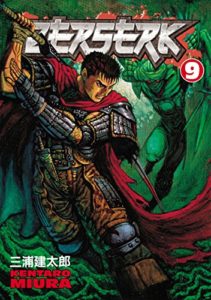 Guts has left the Band of the Hawk to find his own dream. He wants to stand as Griffith equal as his friend. But Griffith needs Guts. He’s the one person Griffith truly trusts, perhaps even loves. Losing Guts has sent Griffith reeling. Needing to take control of his dream, he sneaks into Princess Charlotte’s bedroom.
Guts has left the Band of the Hawk to find his own dream. He wants to stand as Griffith equal as his friend. But Griffith needs Guts. He’s the one person Griffith truly trusts, perhaps even loves. Losing Guts has sent Griffith reeling. Needing to take control of his dream, he sneaks into Princess Charlotte’s bedroom.